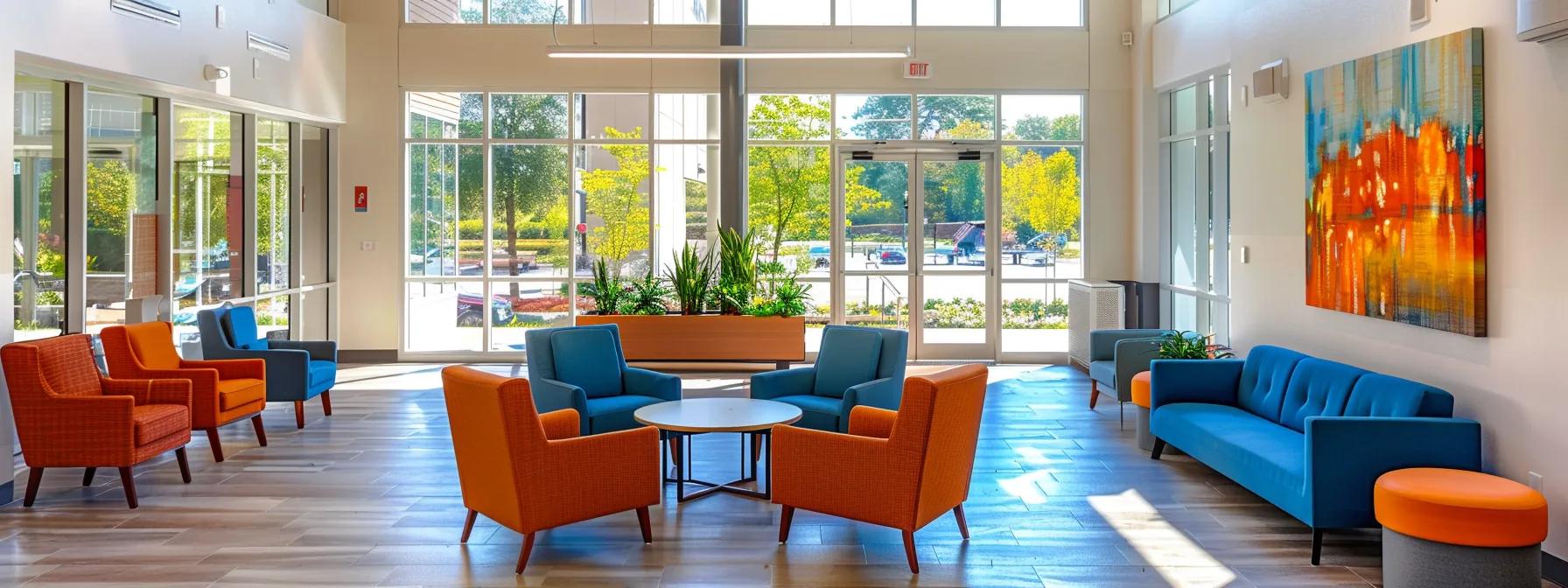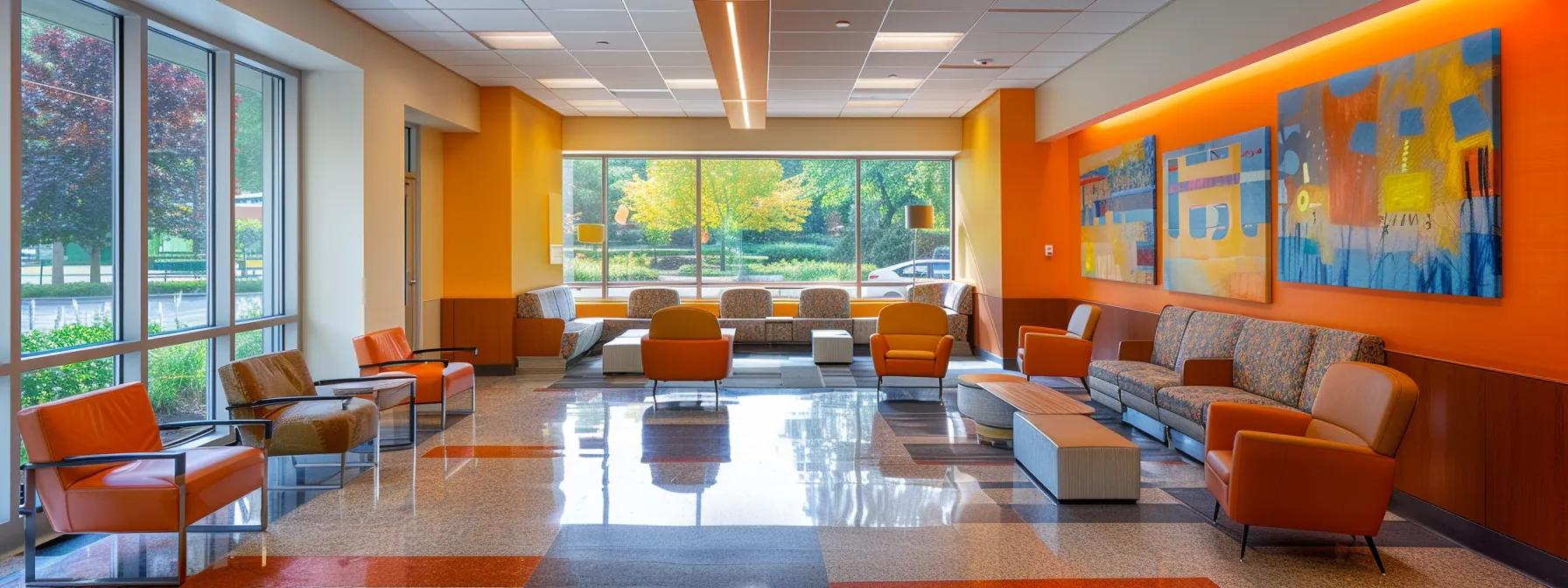Table Of Contents:
- What Are Rehabilitation Aftercare Services in MA?
- Understanding Post-Rehabilitation Support in Massachusetts
- Common Forms of Rehabilitation Aftercare Services in Ma
- Advantages of Utilizing Rehabilitation Aftercare Services in Ma
- Locating and Starting Rehabilitation Aftercare Services in Ma
- The Contribution of Loved Ones to Aftercare Success in MA
- Maintaining Recovery Through Ongoing Aftercare in MA
- Frequently Asked Questions
What Are Rehabilitation Aftercare Services in MA?
Rehabilitation aftercare services in Massachusetts play a crucial role in promoting sustained recovery following intensive treatment programs. In particular, these services often incorporate treatment-recovery approaches that integrate a wide range of support strategies. They extend the continuum of care from inpatient or intensive outpatient settings into community-based support, ensuring that individuals who have undergone treatment for substance use disorders, including alcohol issues, continue to receive therapeutic intervention and practical assistance. For further resources, individuals and families can visit findyourstrength.com to explore additional post-rehabilitation support options. In a state known for its high-quality treatment centers, aftercare supports act as an essential safeguard against relapse by emphasizing long-term lifestyle modifications, skill-building, and proactive relapse prevention. This article is designed for individuals, families, and professionals seeking comprehensive information on post-rehabilitation support in Massachusetts, covering objectives, forms, benefits, and practical considerations, including the role of family involvement and tailored continued care.
A major challenge during recovery is bridging the gap between the highly structured environment of rehab and the complexities of everyday life. Without proper support, patients may become overwhelmed by triggers, stressors, and uncertainty over maintaining sobriety. To address this, rehabilitation aftercare services offer an array of continuing care programs such as sober living environments, ongoing counseling, peer support groups, case management, and alumni programs provided by treatment centers. Each mode of aftercare is supported by evidence-based practices and is tailored to meet individual needs, whether the struggle involves substance addiction or co-occurring mental health concerns.
At the heart of aftercare is the principle that recovery is a lifelong process rather than a finite event. Ongoing care helps maintain momentum by refining coping skills, rebuilding lives, re-establishing relationships, and reintegrating into communities. Moreover, aftercare services provide a supportive environment where individuals learn to navigate everyday challenges—including work, family obligations, and social responsibilities. The following sections explore various aspects of rehabilitation aftercare services in Massachusetts, including core objectives, the distinction between initial treatment and aftercare, forms of rehabilitation support, community advantages, service location, and the important role of loved ones in sustaining recovery.
Understanding the integral components and benefits of successful aftercare can empower individuals on their recovery journey. With a focus on holistic support that nurtures both mental and physical health, rehabilitation aftercare services not only minimize relapse risk but also significantly improve overall quality of life. Whether you are a patient transitioning from treatment or a family member providing support, a thorough understanding of aftercare options is essential.
Understanding Post-Rehabilitation Support in Massachusetts
Post-rehabilitation support in Massachusetts continues care once the patient completes initial treatment. Its fundamental objective is to help maintain sobriety by providing structured, ongoing care that addresses both immediate recovery needs and long-term well-being. Aftercare programs emphasize relapse prevention, integration into community networks, and the development of practical life skills.
The Core Objectives of Rehabilitation Aftercare Services in Ma
The primary aim is to reduce relapse risk while fostering self-reliance and holistic health. First, aftercare reinforces treatment lessons by encouraging patients to continue applying cognitive behavioral strategies and mindfulness techniques, enabling them to manage cravings and stress. It also provides personalized support for co-occurring conditions such as anxiety, depression, or bipolar disorder by integrating outpatient counseling and, when needed, medication-assisted treatment.
Another key objective is to help individuals strengthen their sober social networks, which can mitigate isolation and provide accountability. Aftercare providers also work with patients to design long-term wellness plans that set attainable sobriety goals, teach practical life skills, and outline steps for managing crises. Furthermore, education on substance use, trigger identification, and lifestyle changes forms a core element of aftercare, empowering patients to overcome everyday challenges.
Beyond relapse prevention, aftercare programs aim to enhance overall quality of life by focusing on job readiness, healthy relationships, and physical wellness, enabling patients to achieve personal and professional growth after treatment.
Distinguishing Aftercare From Initial Treatment Programs
While primary treatment is intensive and structured—primarily focusing on detoxification and immediate recovery—aftercare is more flexible and geared toward long-term support. It sustains and builds on the gains of initial treatment through ongoing therapy, continuous monitoring, and community support initiatives, thereby offering a vital link between treatment and real-world living.
Sustained Support for Lasting Recovery
Recovery requires follow-up support that adapts to each patient’s changing needs. Aftercare services schedule regular check-ins, group therapy, and peer-led sessions that contribute to a stable recovery environment. Many Massachusetts providers offer outpatient services that work in tandem with community support systems, ensuring that as patients regain independence, they remain connected to networks that reinforce their sobriety. Programs such as transitional living arrangements provide structure and accountability during the adjustment back to everyday life.
Overall, aftercare provides continuous guidance and a dynamic treatment plan that evolves with the patient, integrating mental health, physical wellness, and social connectivity for comprehensive, lasting recovery.
Common Forms of Rehabilitation Aftercare Services in Ma
After completing intensive treatment, individuals in Massachusetts can access various types of rehabilitation aftercare services that address emotional, social, and practical challenges. These include:

Sober Living Environments Across Massachusetts
Sober living environments offer transitional housing for individuals who have completed formal treatment but are not yet ready to return home. These settings stress accountability, structured peer support, and the continuation of sober habits through group activities and mandated meetings. Often located near treatment centers, these homes liaise with outpatient counseling and job placement services. They also provide life skills workshops, nutritional guidance, and stress management sessions to help residents prepare for independent living. By fostering supportive relationships and offering structured routines, sober living environments help rebuild self-confidence and reinforce sobriety.
Continued Outpatient Therapy and Counseling in MA
Outpatient therapy and counseling continue the support provided during treatment through scheduled sessions with mental health professionals. These sessions may include individual therapy, group counseling, and specialized treatment for co-occurring disorders like anxiety or depression. Outpatient programs, often linked to primary treatment centers, use approaches such as Cognitive Behavioral Therapy (CBT) and Dialectical Behavioral Therapy (DBT) to help patients manage stress and maintain behavioral changes. They also cover practical topics like time management and employment challenges, ensuring a well-rounded continuum of care.
Peer Support Networks and Group Meetings
Peer support networks, including 12-step programs and community support groups, offer safe spaces for individuals to share their experiences and challenges. These groups reduce isolation and provide emotional validation while fostering a sense of accountability. Regular meetups organized by community-based organizations help individuals build connections, share coping strategies, and celebrate achievements, which can improve self-esteem and reduce relapse risk.
Individualized Case Management for Ongoing Assistance
Individualized case management involves professionals who help patients coordinate various aspects of aftercare. Case managers conduct assessments, refer patients to specialized services, and adjust treatment plans as needed. This hands-on support is especially critical for individuals with complex recovery needs, ensuring a comprehensive approach that covers vocational training, educational programs, and recreational therapy. Such tailored support facilitates the development of practical life skills and assists with challenges like housing and employment.
Alumni Programs From Massachusetts Treatment Centers
Many treatment centers offer alumni programs that keep former patients connected through regular activities, social events, refresher sessions, and optional counseling. These programs serve as a reminder that recovery is an ongoing process and provide opportunities for personal growth, networking, and community involvement. Alumni networks help individuals navigate triggers, celebrate milestones, and update their relapse prevention strategies.
In summary, Massachusetts offers a diverse range of aftercare services—from sober living environments and outpatient counseling to peer support, case management, and alumni programs—that work together to create a robust support system for sustained recovery.
Advantages of Utilizing Rehabilitation Aftercare Services in Ma
Utilizing rehabilitation aftercare services in Massachusetts offers many advantages for long-term recovery from substance use disorders. Key benefits include:
Strengthening Relapse Prevention Strategies
Aftercare enhances relapse prevention by reinforcing the gains made during intensive treatment. Regular group therapy, continuous counseling, and personalized case management help identify early signs of potential relapse and adjust coping strategies accordingly. Access to professional help and community resources at critical moments further reduces relapse risk. Additionally, digital tools and virtual support groups enable patients to monitor their progress and manage cravings effectively.
Cultivating a Supportive Sober Community
Aftercare services build and maintain supportive sober communities where individuals share experiences and provide mutual encouragement. Support groups and alumni networks offer safe spaces for discussing challenges and triumphs, reducing feelings of isolation and fostering accountability. This network of like-minded peers serves as an extended family that plays a crucial role in motivating sustained sobriety.
Acquiring Practical Life Skills for Sobriety
Aftercare programs emphasize the development of practical life skills essential for independent living. Workshops on job readiness, financial management, nutrition, stress relief, and interpersonal communication equip patients with the tools needed for a successful transition to everyday life. These skills boost self-confidence and reduce stressors that might trigger relapse.
Aiding a Smooth Transition to Daily Living
The transition from structured treatment to everyday life can be challenging. Aftercare provides gradual reintegration support through tailored counseling, peer support, and flexible schedules. This step-by-step approach ensures that protective practices established during treatment are carried forward, enabling individuals to manage responsibilities and social pressures effectively.
Support for Co-Occurring Conditions Post-Rehab
Many patients face co-occurring issues such as depression, anxiety, or bipolar disorder. Aftercare integrates mental health support with substance use treatment, offering specialized counseling and integrated therapy approaches that address both conditions. By managing the interplay between mental health and substance cravings, aftercare further reduces the risk of relapse.
Locating and Starting Rehabilitation Aftercare Services in Ma
Finding and starting rehabilitation aftercare services in Massachusetts is straightforward with the right guidance. Patients and their families can access various support options—from state-funded programs to community-based services—often receiving recommendations from primary treatment facilities.

Identifying Suitable Aftercare Providers in Massachusetts
Suitable providers can be located through research and inquiry into services offered by treatment centers and independent programs. Many facilities maintain alumni networks or continuum-of-care programs that guide former patients to effective aftercare. Accreditation by regional health agencies and positive success data can help in assessing the quality of these programs. Consulting with primary treatment facilities, reviewing online directories, and considering recommendations from support groups are key steps in selecting a reputable provider.
Guidance From Primary Rehabilitation Facilities
Primary treatment centers typically offer guidance for transitioning to aftercare through established networks and referral programs. These facilities provide comprehensive information on available services, funding options, and initial consultations. They often continue to engage with patients through alumni programs and periodic check-ins, ensuring a smooth transition to continued recovery support.
Navigating Payment Options for Aftercare in MA
Costs for aftercare services vary, but many programs offer sliding scale payment options based on income, with several community-based services funded by state or local governments. Private insurance, including Medicaid, often covers outpatient and aftercare services. Patients are encouraged to discuss payment options with administrators and insurance providers to understand coverage details and potential out-of-pocket expenses.
State-Funded and Community-Based Support Systems
Massachusetts has a robust network of state-funded and community-based support systems that offer tailored aftercare services. These programs include government-sponsored counseling centers, sober living houses, and vocational rehabilitation initiatives, often providing no-cost or low-cost services to qualified individuals. State-funded programs work with local healthcare providers to ensure coordinated care, while community initiatives focus on empowerment through peer support and engagement.
In summary, starting rehabilitation aftercare in Massachusetts involves research, consultation with primary treatment facilities, and understanding payment options to ensure a smooth transition to a supportive recovery environment.
The Contribution of Loved Ones to Aftercare Success in MA
Family and friends play an integral role in rehabilitation aftercare by providing emotional support, accountability, and practical assistance that are critical for preventing relapse. A supportive home environment not only helps stabilize recovery but also reinforces healthy daily habits.
Informing Family and Friends About Recovery Needs
Effective communication with loved ones is key to a successful transition from treatment to everyday life. By discussing recovery needs and progress openly, patients enable family and friends to offer tailored and constructive support. Educational sessions provided by treatment centers can equip loved ones with the knowledge to recognize warning signs of relapse and offer empathetic support.
Fostering a Nurturing Home Atmosphere
Families can contribute to sustained recovery by establishing a stable home environment characterized by routine, mutual respect, and open communication. Regular family meetings and participation in recovery-related activities help reinforce sober practices and provide a model of healthy living for everyone involved.
Involvement in Family-Oriented Support Programs
Family-oriented aftercare programs, including therapy sessions and workshops, offer an opportunity for relatives to learn practical strategies to support their loved one’s recovery. These programs reduce feelings of isolation among family members and build a communal spirit that benefits both the patient and their support network.
Understanding How to Provide Constructive Support
Constructive support involves active listening, non-judgmental encouragement, and practical assistance such as transportation to therapy sessions or help with daily responsibilities. A strength-based approach that celebrates achievements and views challenges as opportunities for growth builds resilience and fosters a deep commitment to recovery.
Maintaining Recovery Through Ongoing Aftercare in MA
Ongoing aftercare services in Massachusetts help sustain recovery by developing personalized long-term wellness plans that integrate therapy, lifestyle changes, and regular self-assessments. Successful aftercare is dynamic and adapts as individual needs and life circumstances change.

Crafting a Personalized Long-Term Wellness Plan
A personalized wellness plan is tailored to an individual’s unique experiences, challenges, and goals. In Massachusetts, aftercare programs work closely with patients to develop comprehensive plans that include mental health care, physical fitness, nutrition, and social support. These plans outline steps for managing stress, identifying triggers, and implementing relapse prevention techniques, and are periodically reviewed and updated to remain effective.
Establishing Achievable Sobriety Objectives
Realistic and measurable sobriety objectives are integral to long-term success. These goals, set collaboratively with therapeutic teams, create a structured framework for tracking progress and celebrating success, whether that means maintaining a set number of sober days or effectively managing social challenges.
Recognizing and Commemorating Recovery Progress
Regular recognition of recovery milestones—through events, awards, or social acknowledgments—reinforces commitment to sobriety. Such positive reinforcement boosts morale and encourages continued adherence to recovery protocols by creating a supportive and celebratory community atmosphere.
Modifying Aftercare Approaches Over Time
As recovery evolves, aftercare programs must adapt to meet changing needs. Early phases may emphasize intensive group therapy and structured support, while later stages gradually transition to more self-led activities. Regular evaluations allow patients and their support teams to fine-tune their approaches, ensuring that the recovery plan remains aligned with current challenges and goals.
Overall, maintaining recovery through ongoing aftercare in Massachusetts requires a comprehensive, adaptive, and personalized approach that integrates long-term wellness planning, achievable objectives, progress recognition, and flexible support strategies.
Frequently Asked Questions
Q: What are rehabilitation aftercare services and why are they important in Massachusetts?
A: Rehabilitation aftercare services provide ongoing support following intensive treatment programs. They help maintain sobriety through structured continued care, relapse prevention strategies, and the development of practical life skills. In Massachusetts, these services are integrated into community-based programs to keep individuals connected to clinical resources, peer support, and vocational training, all of which improve long-term recovery outcomes.
Q: How do sober living environments support recovery after rehab?
A: Sober living environments offer transitional housing with supervised, structured settings that encourage accountability and mutual support. Residents participate in daily routines and support group activities, which reinforce sober habits and create a community focused on health and personal growth.
Q: What role does outpatient therapy play in aftercare?
A: Outpatient therapy provides continued professional guidance in a less intensive setting than inpatient treatment. It uses approaches like CBT and DBT to help patients integrate recovery principles into daily life, ensuring ongoing assessment of progress and adjustment of treatment strategies.
Q: How can family and friends contribute to successful aftercare?
A: Loved ones can create a nurturing home environment by staying informed about recovery needs and actively participating in support programs. Their encouragement, practical assistance, and ability to recognize early warning signs of relapse are critical in reinforcing the patient’s commitment to recovery.
Q: What steps should I take to start rehabilitation aftercare services in Massachusetts?
A: Begin by consulting your primary treatment facility for referrals to aftercare programs. Research reputable providers using directories, online reviews, and professional recommendations. Consider factors such as program type, financial options, and available support structures, and discuss payment options and state-funded programs to ensure a smooth transition from intensive treatment to ongoing recovery support.



